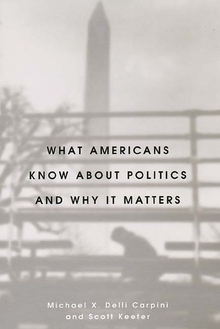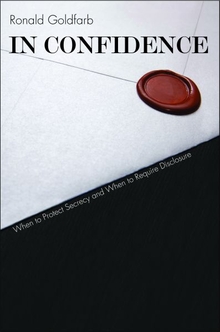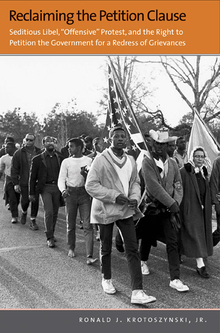What Americans Know about Politics and Why It Matters
WARNING
You are viewing an older version of the Yalebooks website. Please visit out new website with more updated information and a better user experience: https://www.yalebooks.com
Michael X. Delli Carpini and Scott Keeter
This book is the most comprehensive analysis ever written about the American public’s factual knowledge of politics. Drawing on extensive survey data, including much that is original, two experts in public opinion and political behavior find that many citizens are remarkably informed about the details of politics, while equally large numbers are nearly ignorant of political facts. And despite dramatic changes in American society and politics, citizens appear no more or less informed today than half a century ago.
Michael X. Delli Carpini and Scott Keeter demonstrate that informed persons are more likely to participate, better able to discern their own interests, and more likely to advocate those interests through political actions. Who, then, is politically informed? The authors provide compelling evidence that whites, men, and older, financially secure citizens have substantially more knowledge about national politics than do blacks, women, young adults, and financially less- well-off citizens. Thus citizens who are most disadvantaged socially and economically are least able to redress their grievances politically. Yet the authors believe that a broader and more equitably informed populace is possible. The challenge to America, they conclude, lies in providing an environment in which the benefits of being informed are clearer, the tools for gaining information more accessible, and the opportunities to learn about politics more frequent, timely, and equitable.
"[This book] reflects years of data collection and much reading and thought about democratic citizenship. It is a first-rate, . . . very important piece of research that will spark empirical and normative debate for years to come."—James H. Kuklinski, Journal of Politics
"Survey research has told us a lot (perhaps too much) about what citizens believe and what they want. It has told us surprisingly little about what ought to be the middle term between beliefs and desires—what people know about how the world works. This book does a lot to fill that big hole. With clear prose, a deep sense of the normative implications of their enterprise, an imaginative new set of surveys, and analytic elegance. Delli Carpini and Keeter show us the contours of political knowledge and ignorance among Americans why these contours exist, and why they matter."—Jennifer L. Hochschild, Professor of Politics and Public Affairs, Princeton University
"This will be a widely read and widely cited book. It represents a major advance on previous research and a significant contribution to democratic thought."—Gerald Pomper, Rutgers University
"Survey research has told us a lot (perhaps too much) about what citizens believe and what they want. It has told us surprisingly little about what ought to be the middle term between beliefs and desires—what people know about how the world works. This book does a lot to fill that big hole. With clear prose, a deep sense of the normative implications of the enterprise, an imaginative new set of surveys, and analytic elegance, Delli Carpini and Keeter show us the contours of political knowledge and ignorance among Americans, why these contours exist, and why they matter."—Jennifer L. Hochschild, Princeton University
"A demographic spreadsheet of knowledge about electoral and legislative politics relating to the US government. Drawing on both new and existing survey data, [the authors] find that many Americans know a lot and many know nothing, and that the proportion has not changed over the past half century. . . . Also suggests approaches to redistributing the knowledge."—Reference & Research Book News
"An ambitious book that should generate debate in graduate seminars on matters ranging from concepts and theories to the niceties of multivariate analysis. . . . The authors have done a good job of surveying a large amount of data. Working one's way through this book is a stimulating and rewarding experience."—John A. Crittenden, Indiana State University (Perspectives on Political Science)
"The book is a good synthesis of the state of political knowledge and research on the subject. The authors attempt to pull together a variety of theoretical discussions about political learning and political sophistication while examining a broad array of public opinion data. They maintain a solid normative framework throughout, providing some new insights and sometimes provocative conclusion. . . A good resource for teachers of public opinions and U.S. government courses and probably for journalists as well."—Lonna Rae Atkeson, University of New Mexico (American Politics)
"Analyzing a wealth of survey data (including new data collections), Delli Carpini and Keeter have developed the most comprehensive analysis to date of the level and distribution of political information. . . . [The authors] have done a commendable job developing an analysis that yields informative results for democratic theory. Sociologists studying electoral politics, social movements, the media, and the linkages between stratification and public opinion would benefit from an engagement with this systematic introduction to debates over political information among the American public."—Clem Brooks, Contemporary Sociology
"In [this book], we now have a comprehensive examination of the public's knowledge about politics based on a number of studies, including a national survey that was designed specifically to investigate political information. . . . The result is a major contribution to our understanding of how the American public thinks about politics."—Eric R.A.N. Smith, Political Science Quarterly
"Michael Delli Carpini and Scott Keeter have given us just what we need: a programmatic investigation of political knowledge that draws thoroughly from preexisting survey data sets dating back to the 1940s and from newly collected data as well. . . . In sum, this thorough and engaging book has pushed our understanding of political knowledge in America ahead significantly. . . . It is essential reading for any student of public opinion or democracy."—Jon A. Krosnick, Annals of the American Academy of Political and Social Science
"An excellent book. . . . The authors contribute usefully to the ongoing debate about the nature of and prospects for democracy in the U.S."—Choice
Publication Date: September 23, 1997
31 b/w illus.







